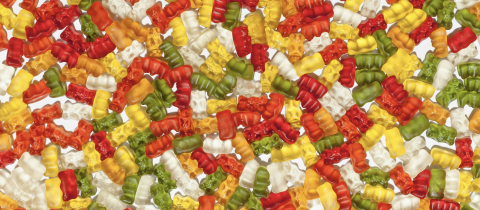A friend forwarded me an interesting facebook post that claimed that the best time to drink water was just before going to bed. Upon careful reflection, it seems to me that this would be the worst possible time to drink water unless you really enjoy waking up in the middle of the night to go to the bathroom.
First off, as we have mentioned before, it is a myth that we must drink 6-8 glasses of water a day to be healthy. So right off the bat, drinking water deliberately to prevent disease is largely a wasted effort. Any excess water you drink must be eliminated from your body in your urine (although we also lose a small amount of water through sweat and from the water vapour we breathe out from our lungs). In short, if you drink more water you will produce more urine.
There is however a commonly held belief that if you drink more water and produce more urine this will cause you to filter your blood to a greater degree and thereby remove any potentially harmful substances lurking within. This logic, however, is flawed for several reasons.
Firstly, I believe most people know that it is your kidneys that produce urine. These unsung heroes of human physiology perform a remarkable task. They are capable of filtering a huge amount of blood. Normal kidneys will filter about 100-120 ml of water per minute. This varies a bit depending on your height and weight, but these numbers will serve us well for our numerical example. For anyone who is interested in knowing how much their kidneys filter, the number shows up on most routine blood tests as the estimated glomerular filtration rate (eGFR).
Thus if we do the math, 120 ml/min amounts to just over 7 litres per hour and just over 170 litres per day. Given that you only have about 5 litres of blood inside you, that means the kidneys filter the equivalent of your entire blood volume about 35 times per day. So right off the bat, adding an extra cup of water to that calculation is insignificant.
The real interesting part though is what happens next if that filtered blood volume just poured out of us as urine we would need to spend our whole day drinking water in order to keep pace. Fortunately, we have a wonderfully complex and precise mechanism for re-absorbing free water before it leaves us via our bladders. For anyone interested, this is managed via a hormonal messaging system called the renin-angiotensin system. Under normal circumstances, only about 1-1.5 litres of water is excreted in the urine with the rest being re-absorbed. If you drink water in excess of what your body requires, it will simply pass through your kidneys without being re-absorbed later.
It is commonly thought, and more commonly stated on the internet, that very dark concentrated urine is a sign of kidney disease. In fact, nothing could be further from the truth. If you damage your kidneys in some way, the first thing to go is their ability to re-absorb filtered water. A helpful mnemonic for any aspiring medical students reading this is, “Damaged kidneys are like tired students. They lose their ability to concentrate.” When kidneys begin to fail, they first begin to produce inappropriately dilute urine, not concentrated urine.
The only thing you will accomplish by drinking more water at night is increasing the number of times you will get up at night to urinate. In men, nighttime urination is often a consequence of an enlarged prostate. However, drinking an excess of water at night is hardly helping the situation, and being a bit more judicious about nighttime liquid consumption may help somewhat. The other often-overlooked issue is the use of diuretics. Although helpful for treating a number of cardiac conditions, especially heart failure, they inevitably make people urinate more and taking them too late in the day will inevitably lead to nighttime urination.
In short, a few extra glasses of water are doing next to nothing for your kidneys and have almost no impact on your heart. Given the quantity of blood that filters through your kidneys on an hourly basis, those few extra cups are as insignificant to your kidneys as barnacles are to a battleship. So the best time to drink water is not at night. It’s when you are thirsty.
Want to comment on this article? View it on our Facebook page!







